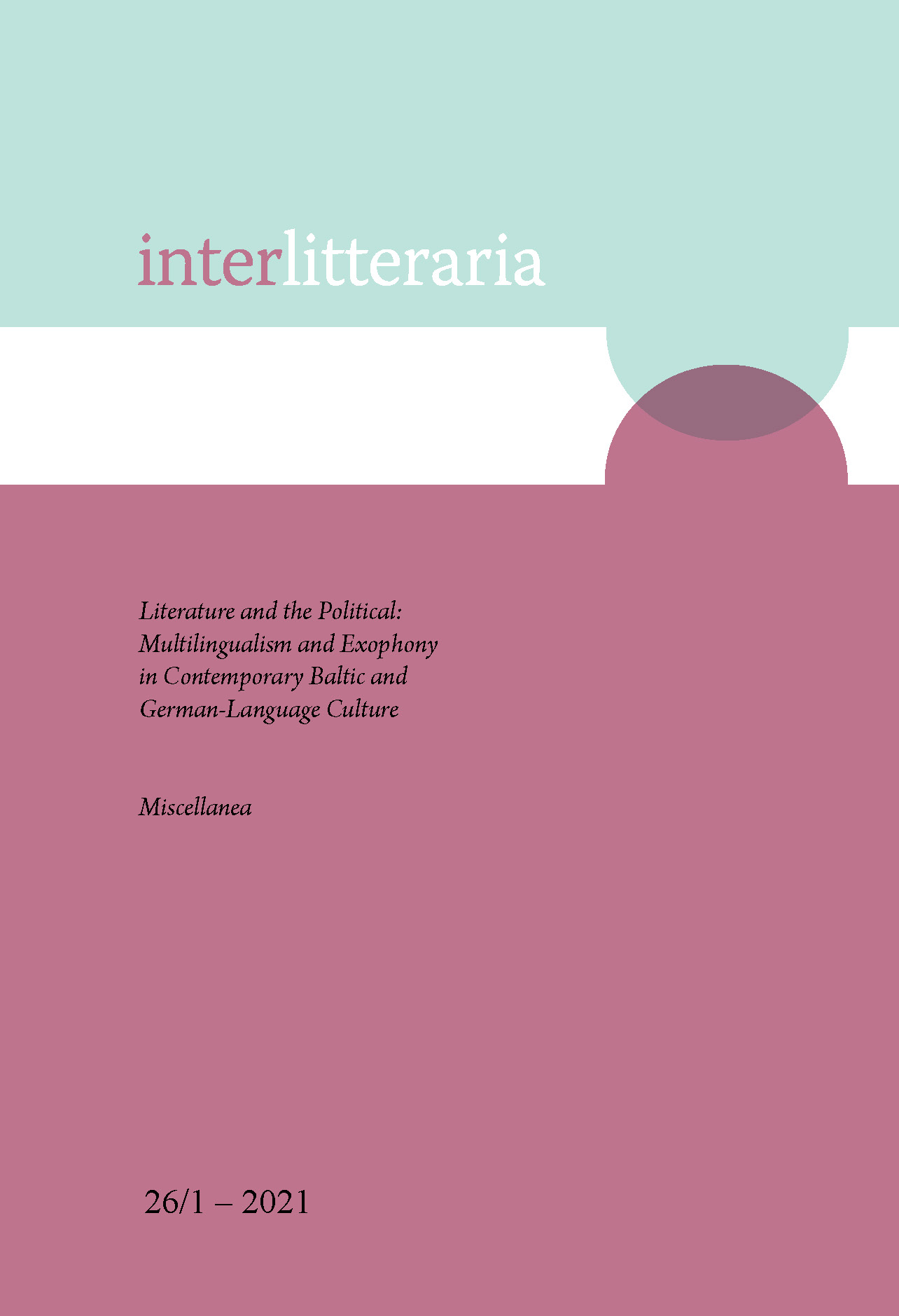Train of Language, Train of Thought: Notes on an Exophonic Anomaly
DOI:
https://doi.org/10.12697/IL.2021.26.1.16Keywords:
poetry, poetics, exophony, irony, bilingualismAbstract
The creation of poetry with literary value in a non-native language often invites questions about how this is possible to achieve. This question, however, can be turned around: is there something in being an exophonic poet that, rather than being an obstacle, could make the development and maturing of a poetic language possible? Adam Zagajewski writes that ardor, not irony, can be primary building blocks, and about the ideal of being ‘in between’. Ben Lerner writes about the sources of Hatred of Poetry and sees poetry as a potential that can never be completely realised. Being between languages causes the reality of language as one of many possibilities to be always present. The result can be construed as a poetic of time and light, but also of a reconciliation at depth warranted by the poetic ethos. Language becomes aware of itself, its autonomy and inherent lack of objectivity, and this becomes less naive and prone to cliches, but this awareness need not spiral into self-dissolving irony. Rather, it may seek to reconcile the possible ways of seeing the world into a new sense of sincerity. It inspires creative and playful use of language, gives heightened awareness of possible metaphors even where the sense of the transferred image is absent within the framework of one language. This has the potential to change perception of language and reality in a way that makes poetry almost possible.
Downloads
Downloads
Published
Issue
Section
License
The contents of Interlitteraria are published under CC BY-NC-ND licence.


